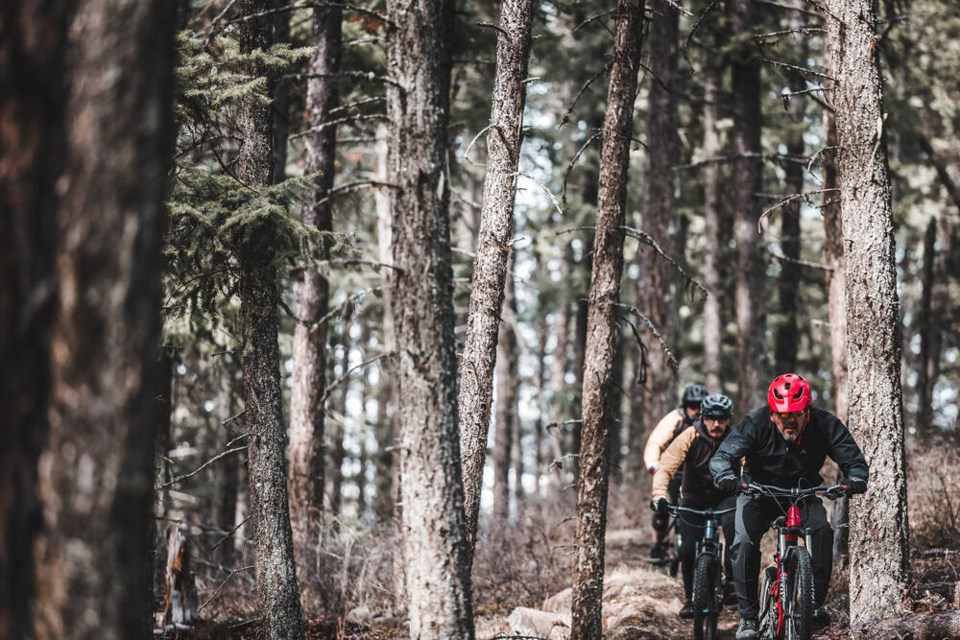To some, mountain biking delivers an escape from stress, an opportunity to improve fitness, and a chance to connect with nature. To others, the sport, and the community that accompanies it, offers a lifeline.
The hundreds of riders, trail builders, community activists and youth members that have participated in the Indigenous Youth Mountain Bike Program since its inception in 2012 will vouch for the second.
A non-profit that assists First Nations communities in the development of nature trails, the province-wide program aims to build relationships, encourage reconciliation and heal intergenerational trauma. It has helped thousands in its 12-year lifespan, and now the founders are set to spread its message further with new documentary, Dirt Relations.
Due to make its world premiere at the opening night of the approaching Vancouver International Mountain Film Festival, the film follows founders Thomas Schoen, Patrick Lucas and Tom Eustache as they deliver the program across British Columbia.
While the Youth Mountain Bike Program has received much media coverage in its time, never before has there been such attention given to the men who run the operation, said the film’s director Matthew Clark.
“There is this deep dive into their individual stories, how they are all connected and how they founded this incredible program,” he said, adding how the film showcases how the three – Eustache, a member of the Simpcw First Nation; Schoen, a director for the Williams Lake Cycling Club and president of the Cariboo Mountain Bike Consortium; and Lucas, an award-winning professional land planner – each bring something unique and important to the operation.
The goal of both the program and documentary, said Clark, is to highlight a simple lesson – the importance of listening to First Nations communities.
“This is really about learning how to have the patience to listen. Unfortunately, many people don’t have enough background in being exposed to First Nations communities, and the most common thing we learned while travelling these locations was how vital it is to just listen and learn, without judgment.”
For Jules Philip, a former councillor for the Simpcw First Nation, the program helped in “ways you can’t believe.”
Philip had been battling demons of his own when he joined the program in its early years. Now, he leads programs in his hometown of Barriere, building trails, leading singalongs of traditional songs and lending a listening ear to others facing similar struggles.
“I hope that when people see this documentary, the message that they get is that no matter how hard it gets, there’s always somebody there that can help you,” said Philip.
“Riding a bike, feeling the wind against your face, having your friends along with you and talking with other men who have the same issues in that way, it’s such a positive way out.”
Philip said the film will open eyes to what it truly means to be listening to the stories of Indigenous communities, and experiencing the sights and sounds of different First Nations lands.
“It gives you a warm feeling to know, this is so much more than just riding a bike,” he said.
Dirt Relations will make its world premiere on opening night of the VIMFF, Friday, Feb 23 at North Vancouver's Centennial Theatre. For more information and tickets, visit the festival’s website.
Mina Kerr-Lazenby is the North Shore News’ Indigenous and civic affairs reporter. This reporting beat is made possible by the Local Journalism Initiative.



